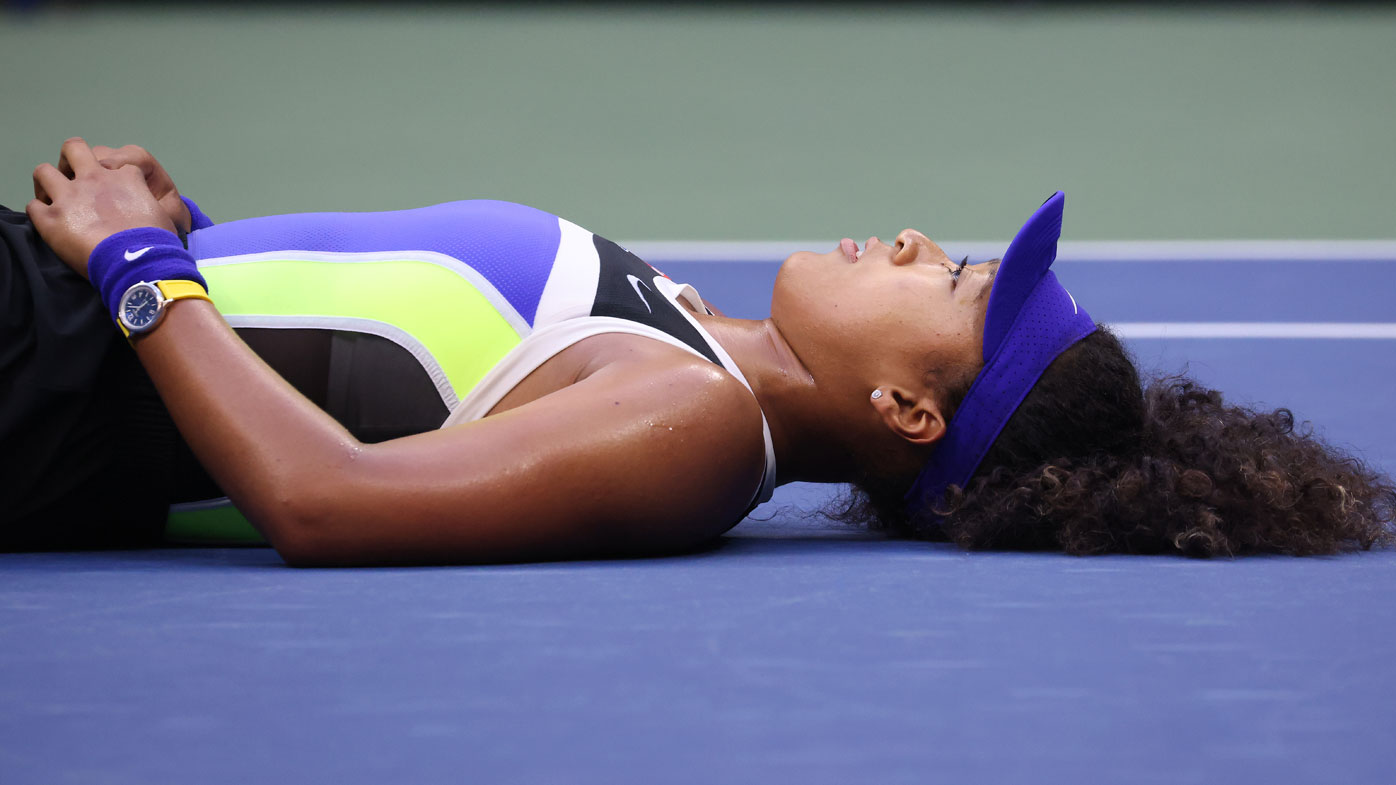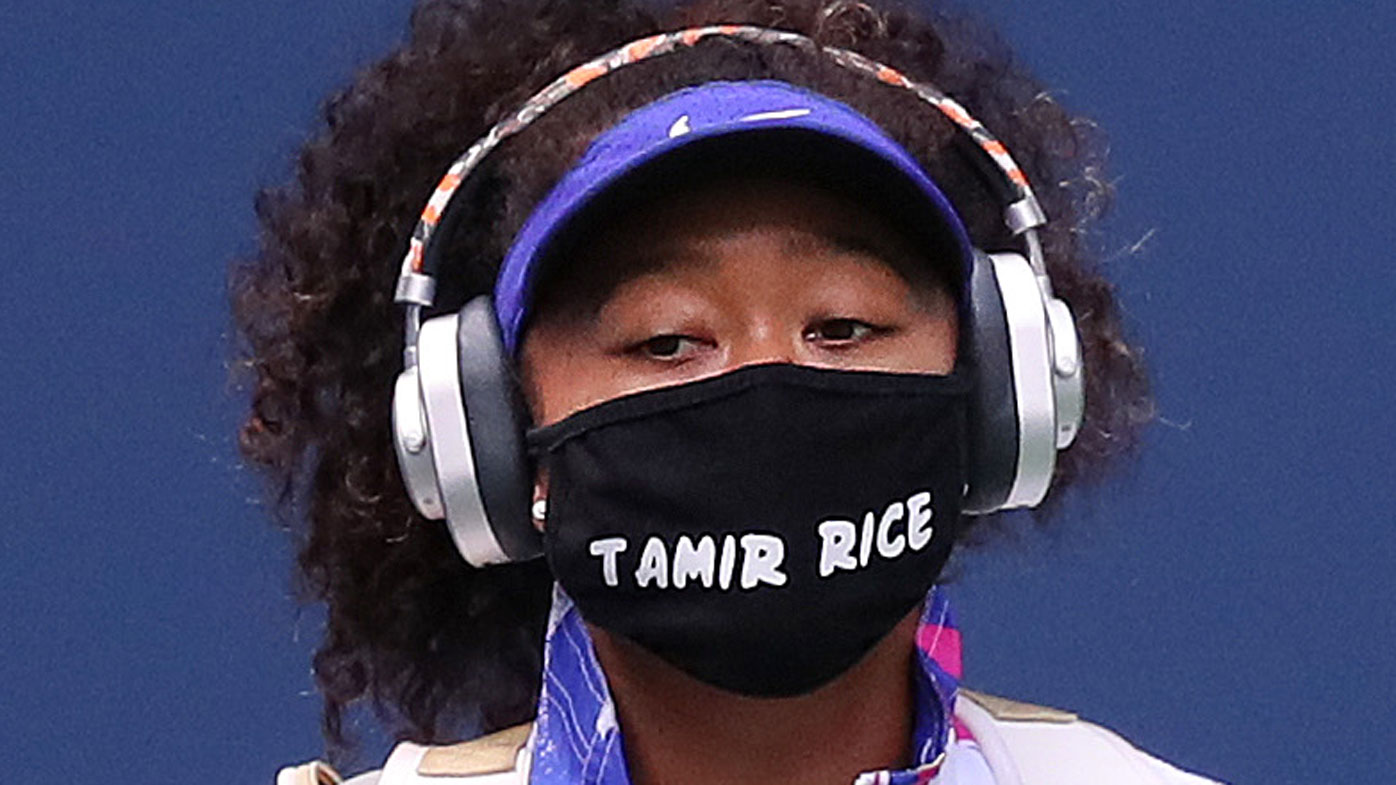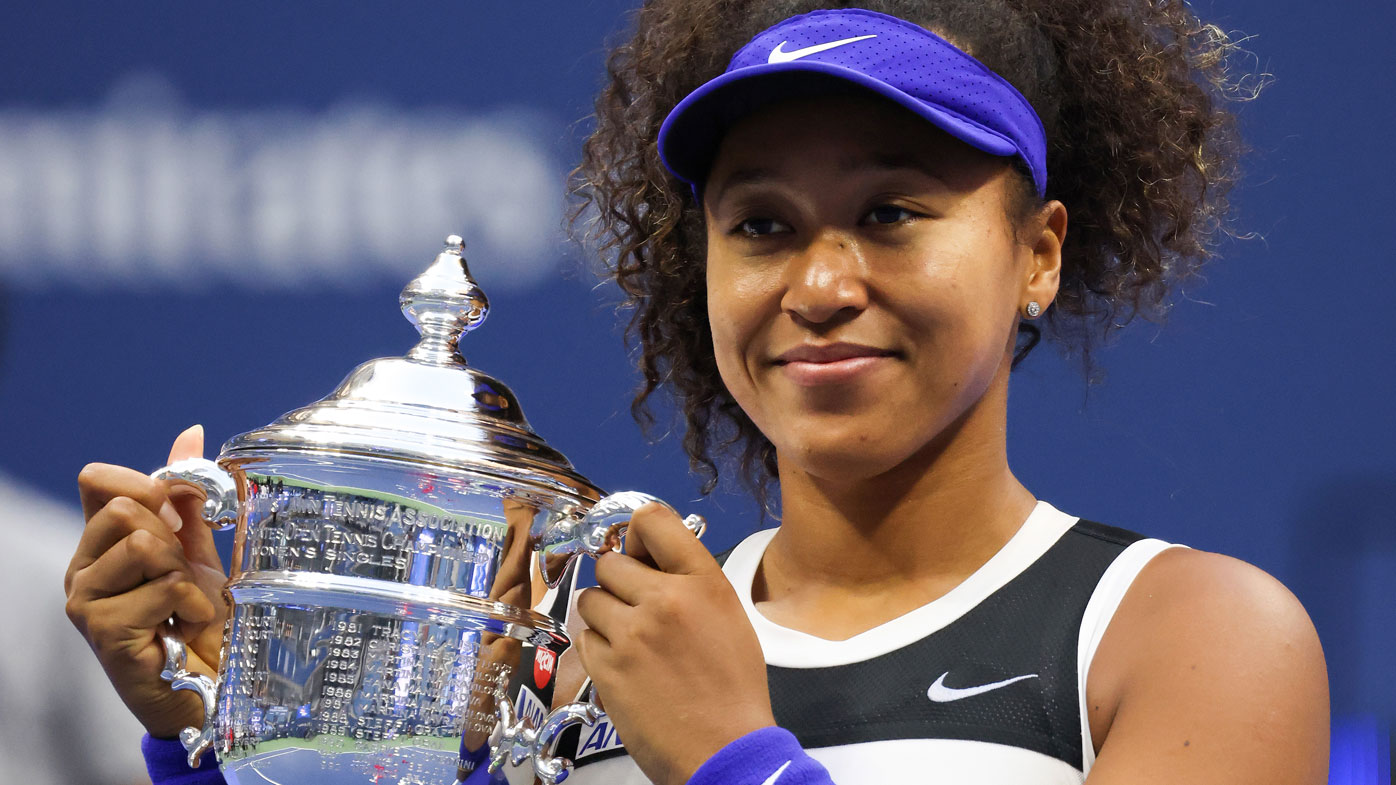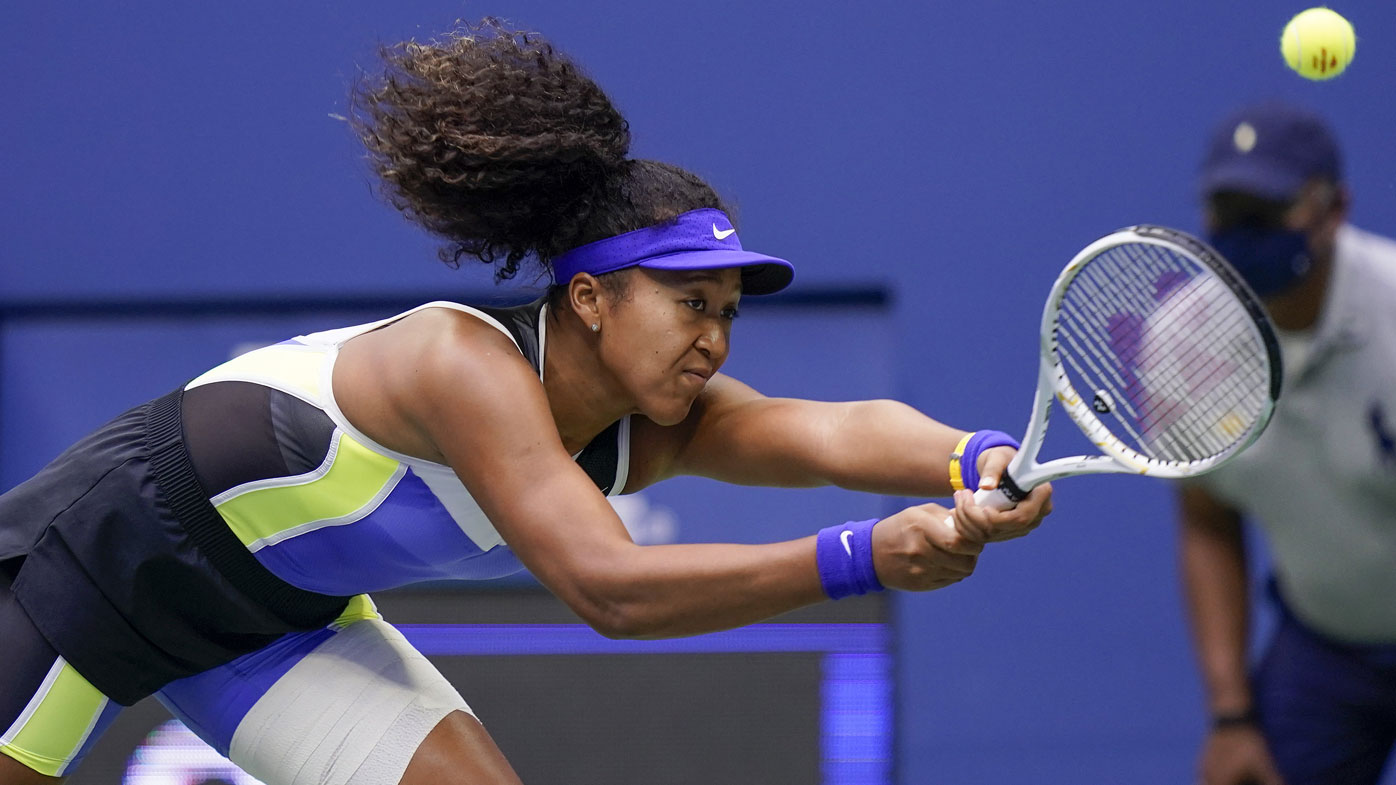Naomi Osaka took ownership of her stardom at this US Open.
Fame was something that sat uncomfortably after she became a tennis phenom with victory in the 2018 US Open and the 2019 Australian Open.
Her Flushing Meadows win two years ago came amid bizarre circumstances, as Serena Williams' umpire rage sent Arthur Ashe Stadium into meltdown. Osaka wept in her finest moment.
She won at Melbourne Park and her rock star status was undeniable; only she's far from a rock star. She's a quiet soul to whom instant fame did not appeal. It was an inevitable but unwanted byproduct of success.
The pressure of being a top player brought startling losses and public tears. Fame came instantly but learning to handle it was a process. She cut a disgruntled figure at this year's Australian Open and lost in the third round to teenager Coco Gauff.

That person was gone by this US Open, replaced by a leader befitting Osaka's status in tennis.
First, Osaka stood down from a match at the Southern and Western Open, in the wake of the police shooting of Jacob Blake. In May, she had protested in Minneapolis after the death of George Floyd.
At the US Open, she prepared seven masks bearing seven names; victims of police violence. It was a boss move in more ways than one: seven masks meant that she counted on at least making the final. Once there, she certainly counted on winning, and did just that.
Tamir Rice's name adorned her mask for the decider against Victoria Azarenka. Rice was a 12-year-old boy shot dead by a white policeman in 2014 while holding a toy gun.
Asked by ESPN's Tom Rinaldi what message she wanted to send with the masks, Osaka was typically short and to the point.
"Well, what was the message that you got? [That] is more the question," she said. "I feel like the point is to make people start talking."
The moment was awkward: it demanded self-reflection. It demanded, on the biggest possible stage, that uncomfortable conversations be had. That things change for the better for racial minorities who have faced unrelenting discrimination.

Osaka, of Japanese and Bahamian heritage, has already been a force for change in Japan, with regard to negative attitudes against people of mixed race. At this US Open, she led the debate on injustice against black people, seeing that task as an opportunity rather than a burden.
"The thing is, for me I felt like everything that I was doing off the court was sort of on the court at the same time too because I'm walking on to the court [wearing the mask] in that moment," she said on ESPN.
"It made me stronger because I felt like I have more desire to win, because I want to show my names and I want people to talk about it more. It wasn't that bad of a struggle."
https://twitter.com/KingJames/status/1304906861334999046?s=20
The maturity also translated to her game. Osaka bounced her racquet once against Azarenka, late in a disastrous 6-1 first set that ended in 26 minutes. She was down 2-0 and 40-30 on Azarenka's serve in the second set, the match nearly gone, but her fighting spirit was boiling over.
She became the first woman in 26 years to come back from a set down to win a US Open final. It was a remarkable display of character, mental toughness and self-belief.
Post-match, the humble star made a telling comment: When she's switched on, she doesn't lose. Never. Ever.
"For me, I felt like coming into these two tournaments (the Southern and Western and US Opens), all I wanted to do was behave myself and be positive," Osaka told ESPN.
"Because I felt like at the beginning of the year in Australia, I had quite a few mental breakdowns on court. I just wanted to stay calm and stay consistent and I think I managed to do that.
"I came here with a goal of playing in the final. A lot of people want to be in this final, so I can't lose 6-1 6-0.
"And I've never played against someone that beat me when I'm trying really, really hard."

Osaka moved away from her family base in Florida to Los Angeles last year. It was another step towards the new her. She now has a high-profile boyfriend, rapper Cordae, who is credited as being influential in her activism.
"I sort of forced myself to grow up a little bit," Osaka said.
"It's a bit weird because also at the same time you feel homesick. We went driving through the streets yesterday and I was crying because I remembered everything my mum sacrificed when I was younger and she couldn't even watch my matches.
"Of course it makes you grow up and hopefully it translates in my tennis."
Having found such productivity in this new maturity, her immediate aim is simple.
"Honestly, just keeping the same positive attitude," she said.
"I feel like when I think about winning too much, [as] I did sort of in the third set of the match ... I go outside of myself. For me, the key is to stay calm.
"On the court, off the court, just try to mature more as a person."
from WWOS https://wwos.nine.com.au/tennis/naomi-osaka-us-open-final-stars-transformation-complete-black-lives-matter-australian-open/4368a04f-5729-416b-aaa9-3a2e48f566b2


0 Comments